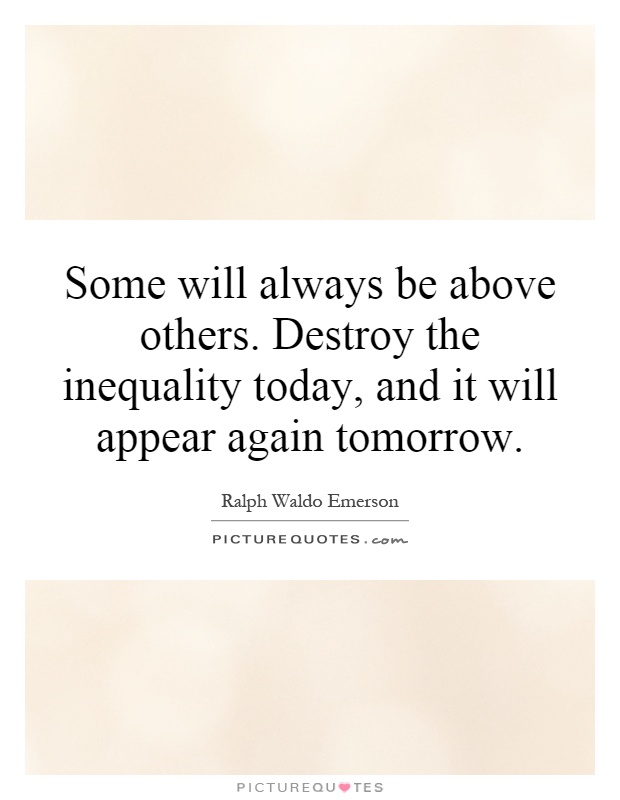Some will always be above others. Destroy the inequality today, and it will appear again tomorrow

Some will always be above others. Destroy the inequality today, and it will appear again tomorrow
Ralph Waldo Emerson, a prominent American essayist, lecturer, and poet, was known for his transcendentalist philosophy that emphasized the importance of individualism, self-reliance, and the interconnectedness of all living beings. In his works, Emerson often explored the concept of inequality and the inherent disparities that exist within society.Emerson believed that inequality was a natural part of the human experience, as individuals possess different talents, abilities, and circumstances that inevitably lead to varying levels of success and achievement. He recognized that some individuals would always be above others in terms of wealth, power, and social status. However, Emerson also believed that true greatness lies in the ability to rise above these external markers of success and find fulfillment in one's own unique talents and passions.
Emerson's philosophy of self-reliance and individualism encouraged people to look within themselves for guidance and inspiration, rather than seeking validation from external sources. He believed that true equality could only be achieved through self-awareness, self-acceptance, and self-improvement. By focusing on personal growth and development, individuals could transcend the limitations of societal expectations and create a more just and equitable world.
Emerson also recognized the cyclical nature of inequality, noting that even if disparities were eliminated today, they would inevitably reappear in some form tomorrow. He understood that human nature is inherently flawed and that greed, envy, and ambition often lead to the perpetuation of inequality. However, Emerson believed that by cultivating a sense of inner peace, contentment, and gratitude, individuals could overcome these negative impulses and create a more harmonious society.












 Friendship Quotes
Friendship Quotes Love Quotes
Love Quotes Life Quotes
Life Quotes Funny Quotes
Funny Quotes Motivational Quotes
Motivational Quotes Inspirational Quotes
Inspirational Quotes